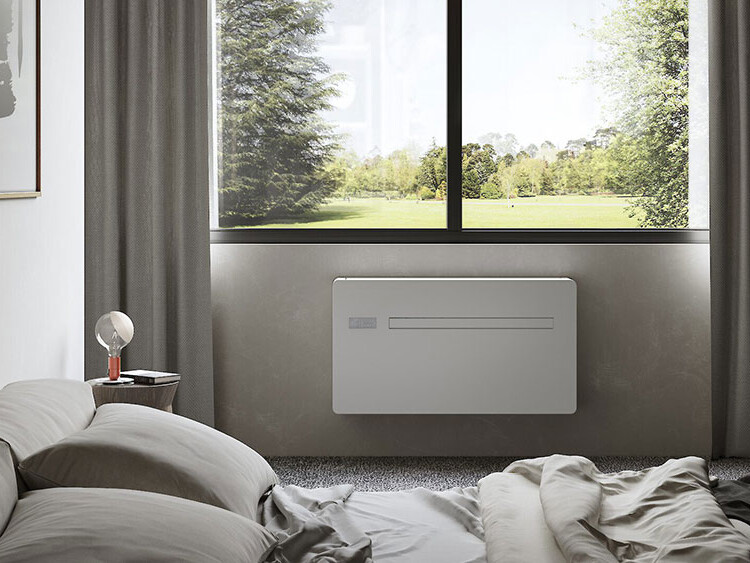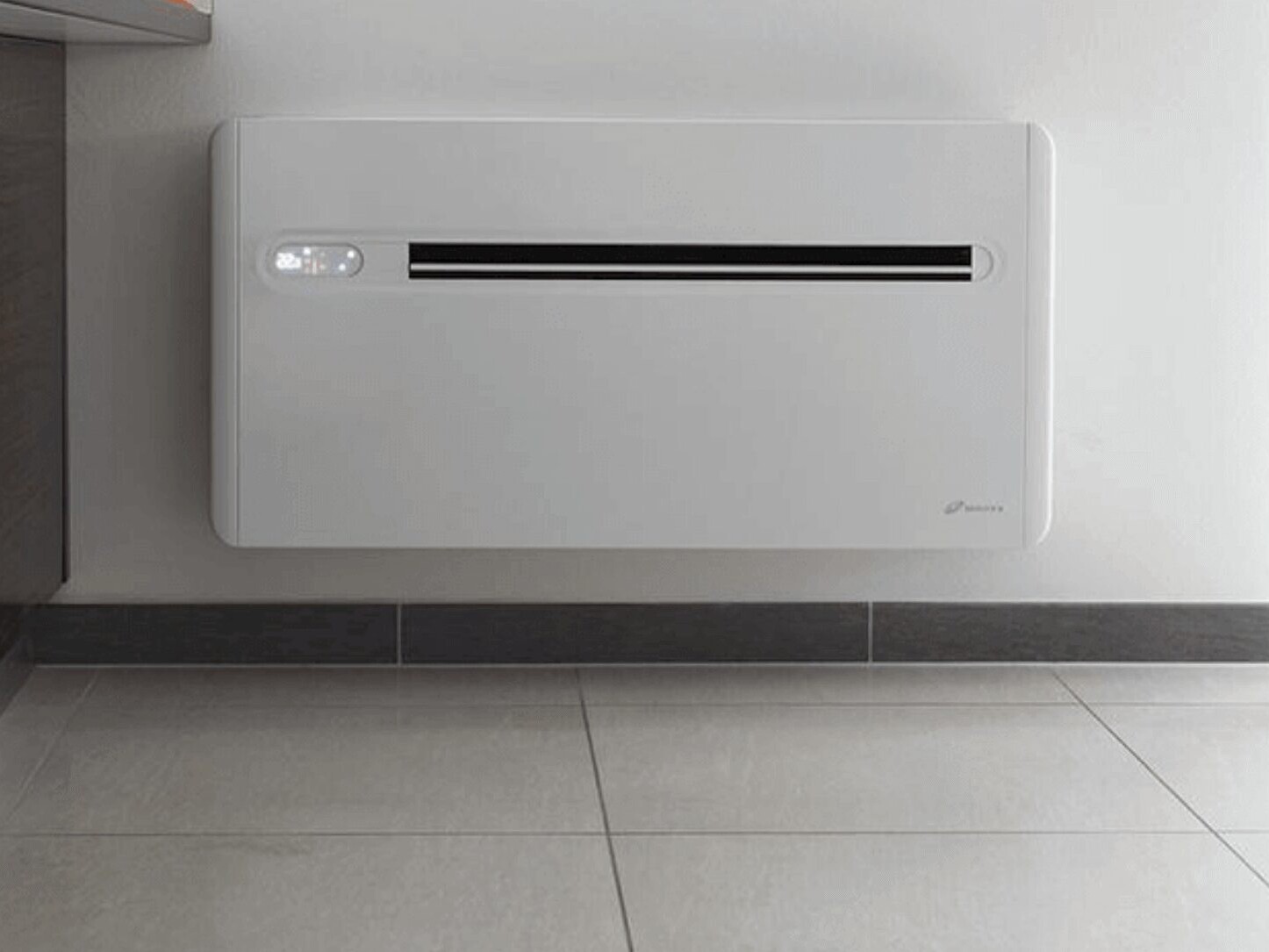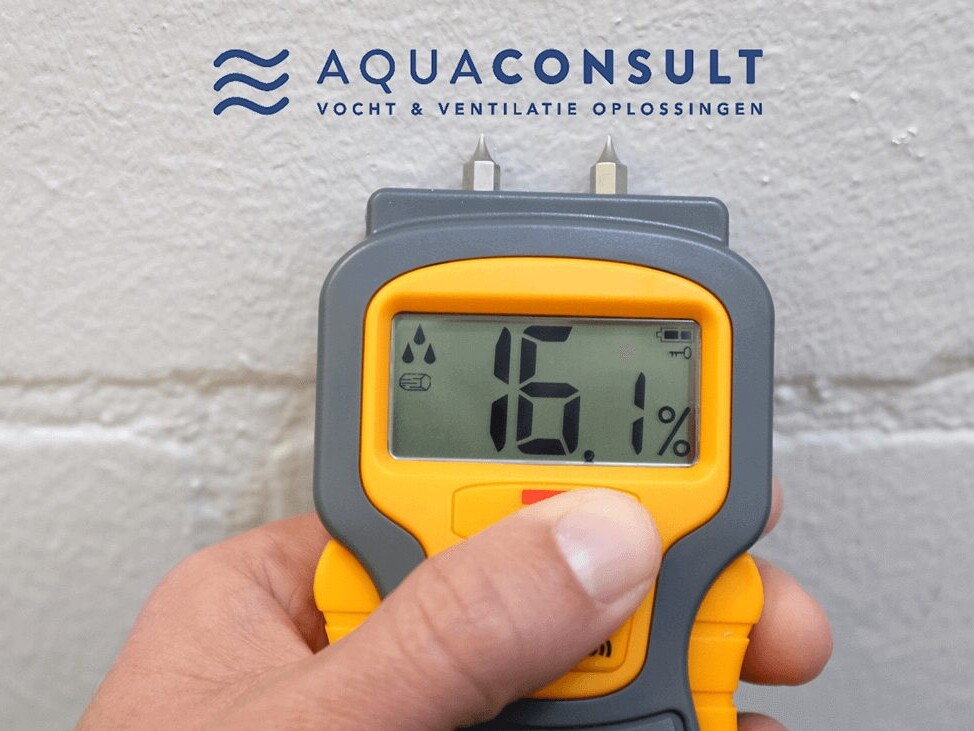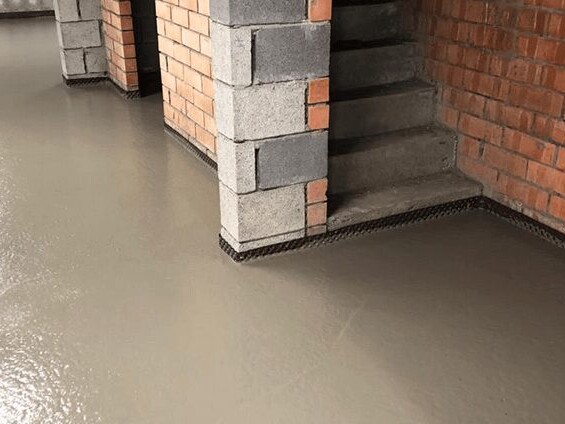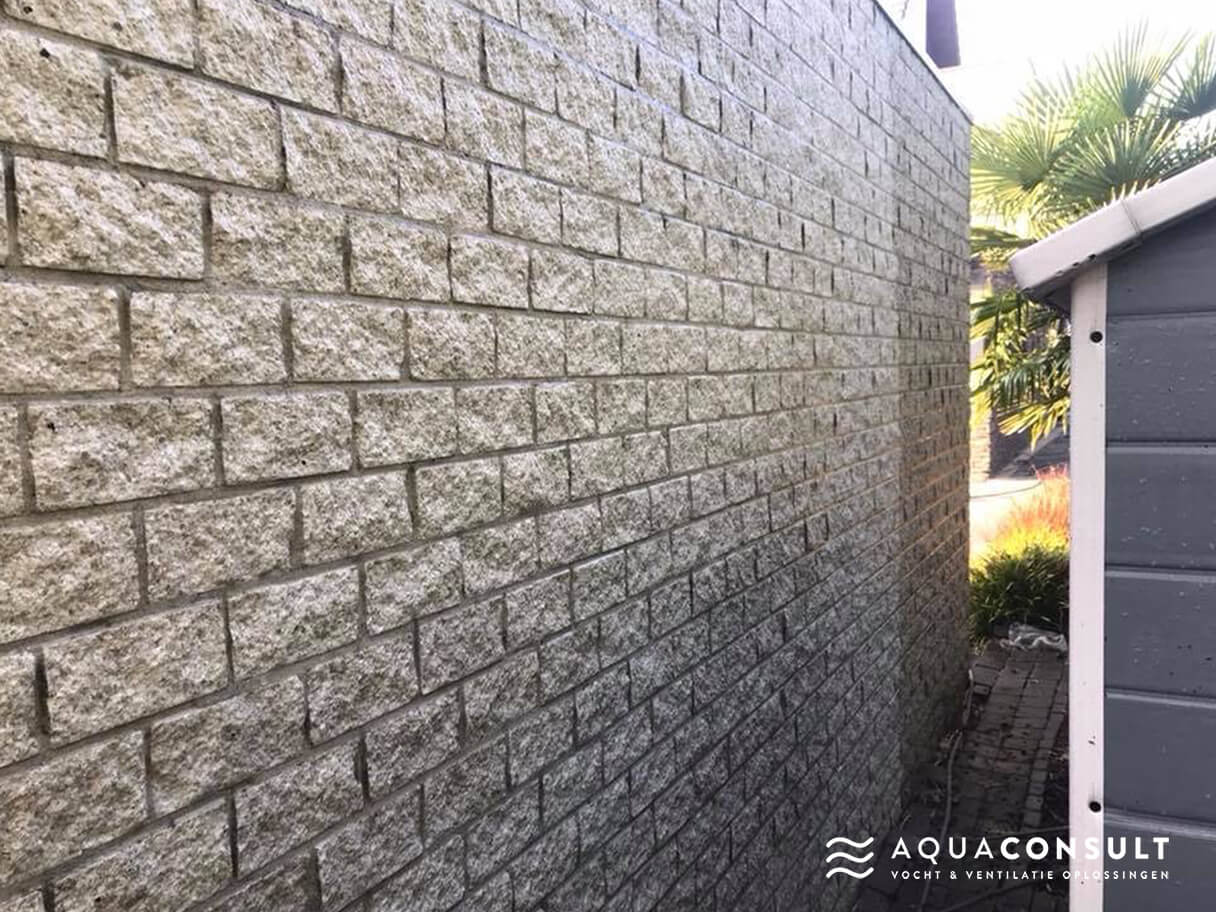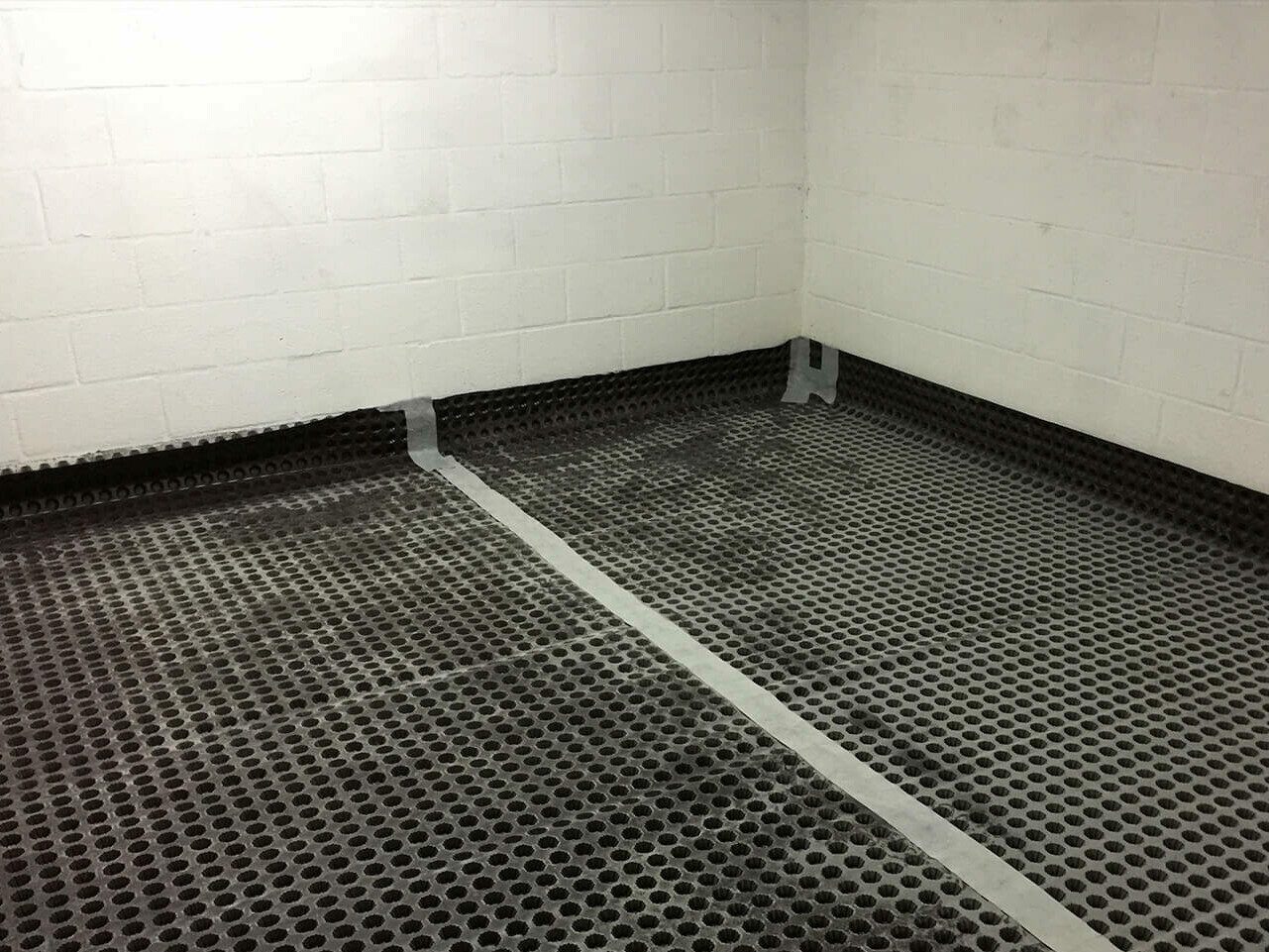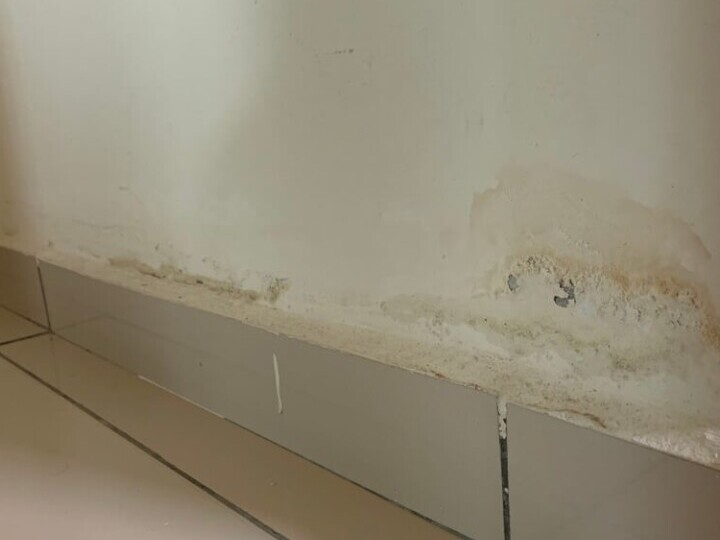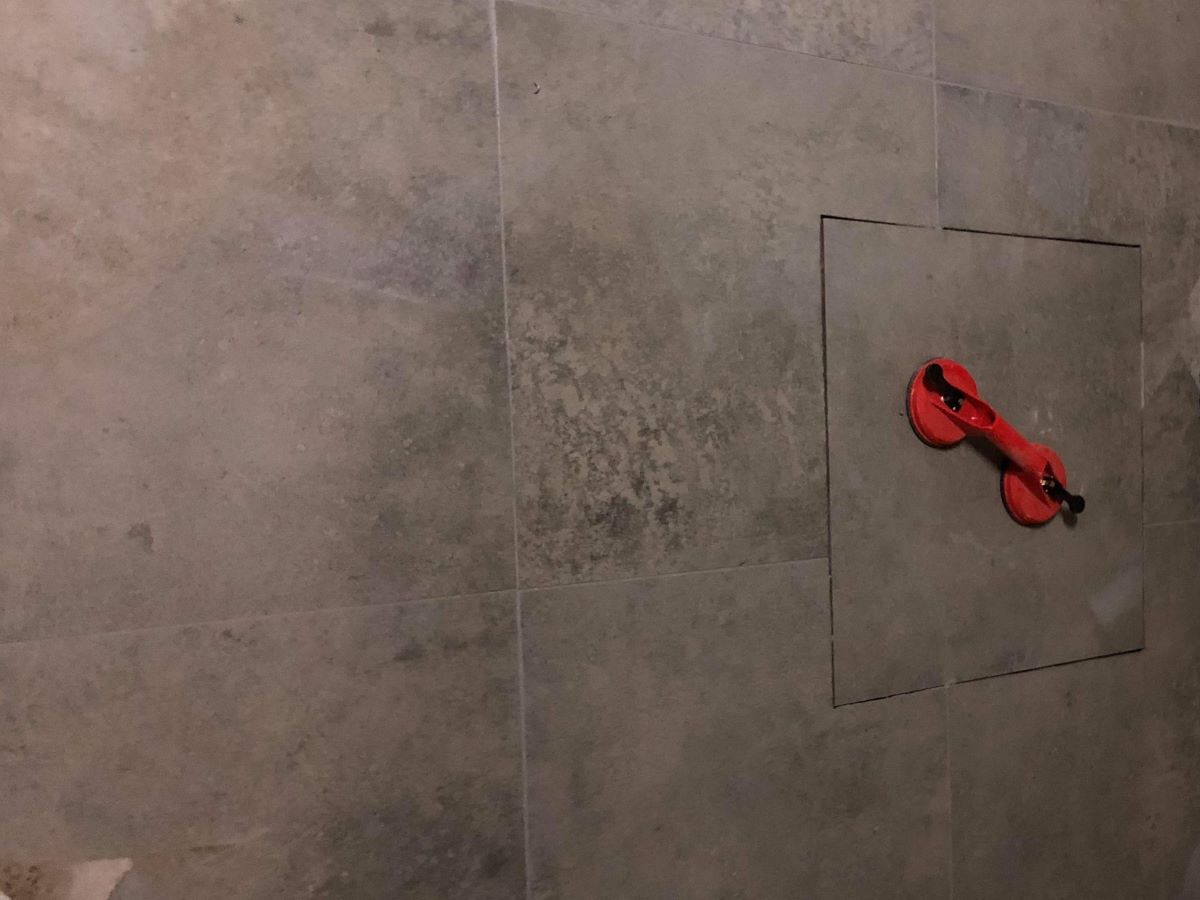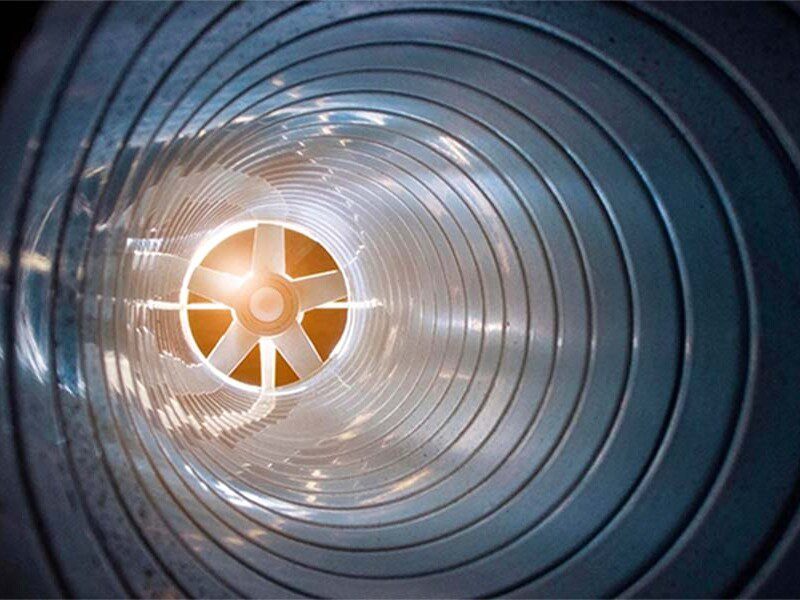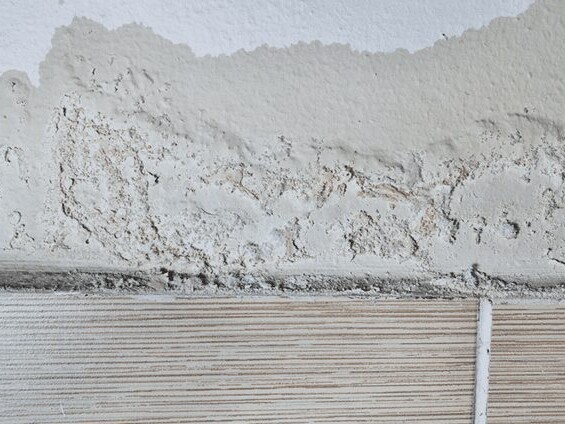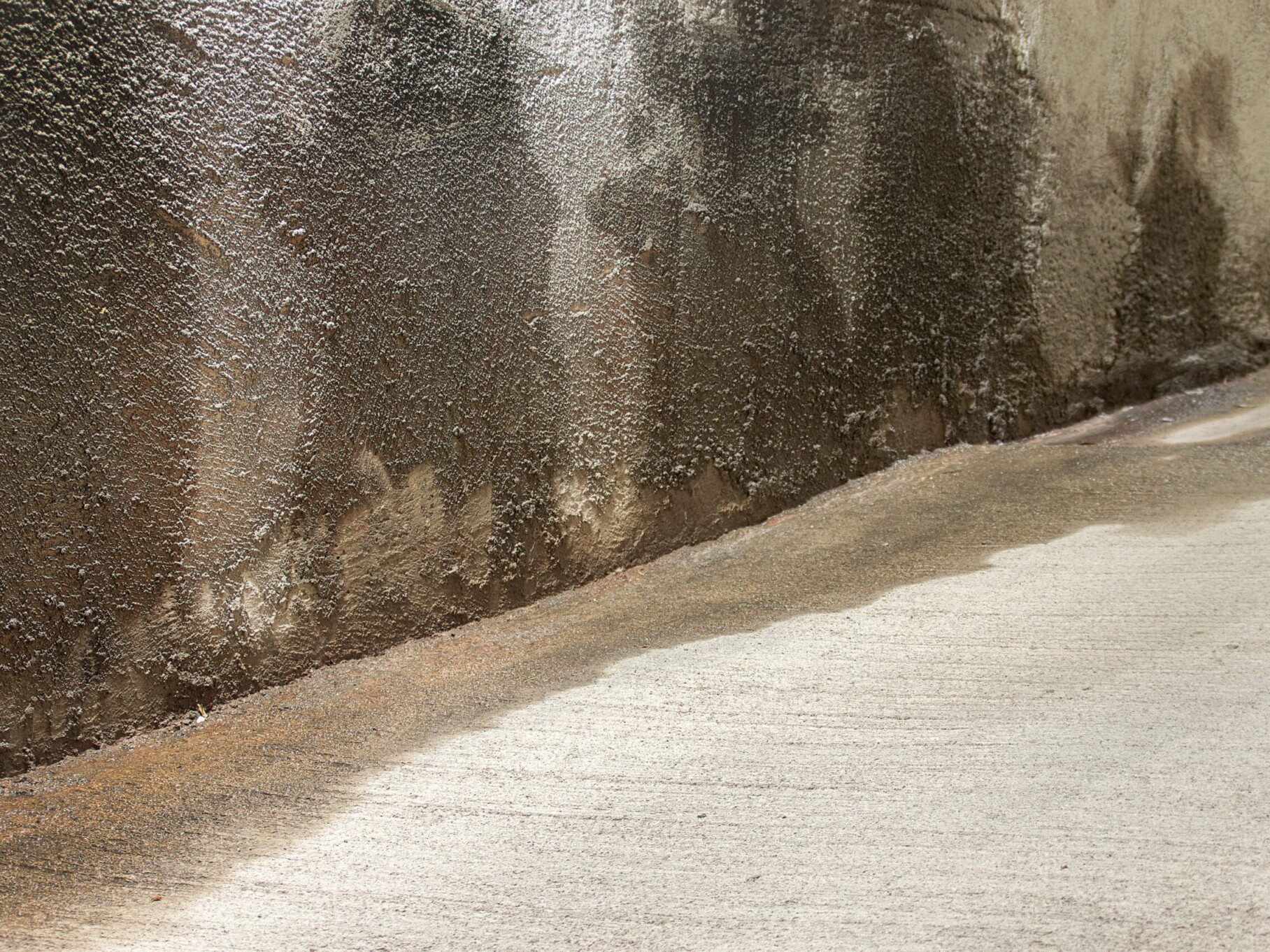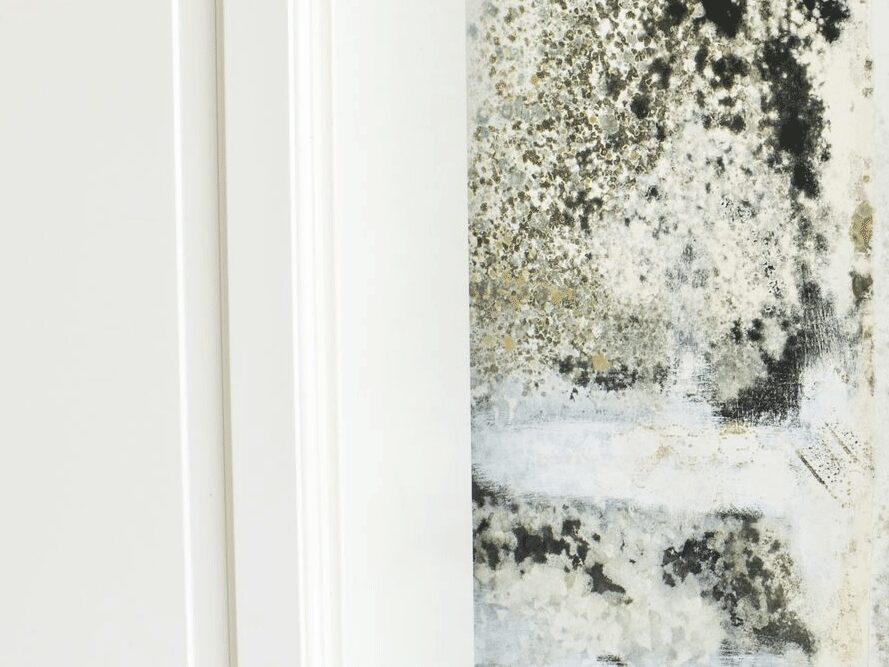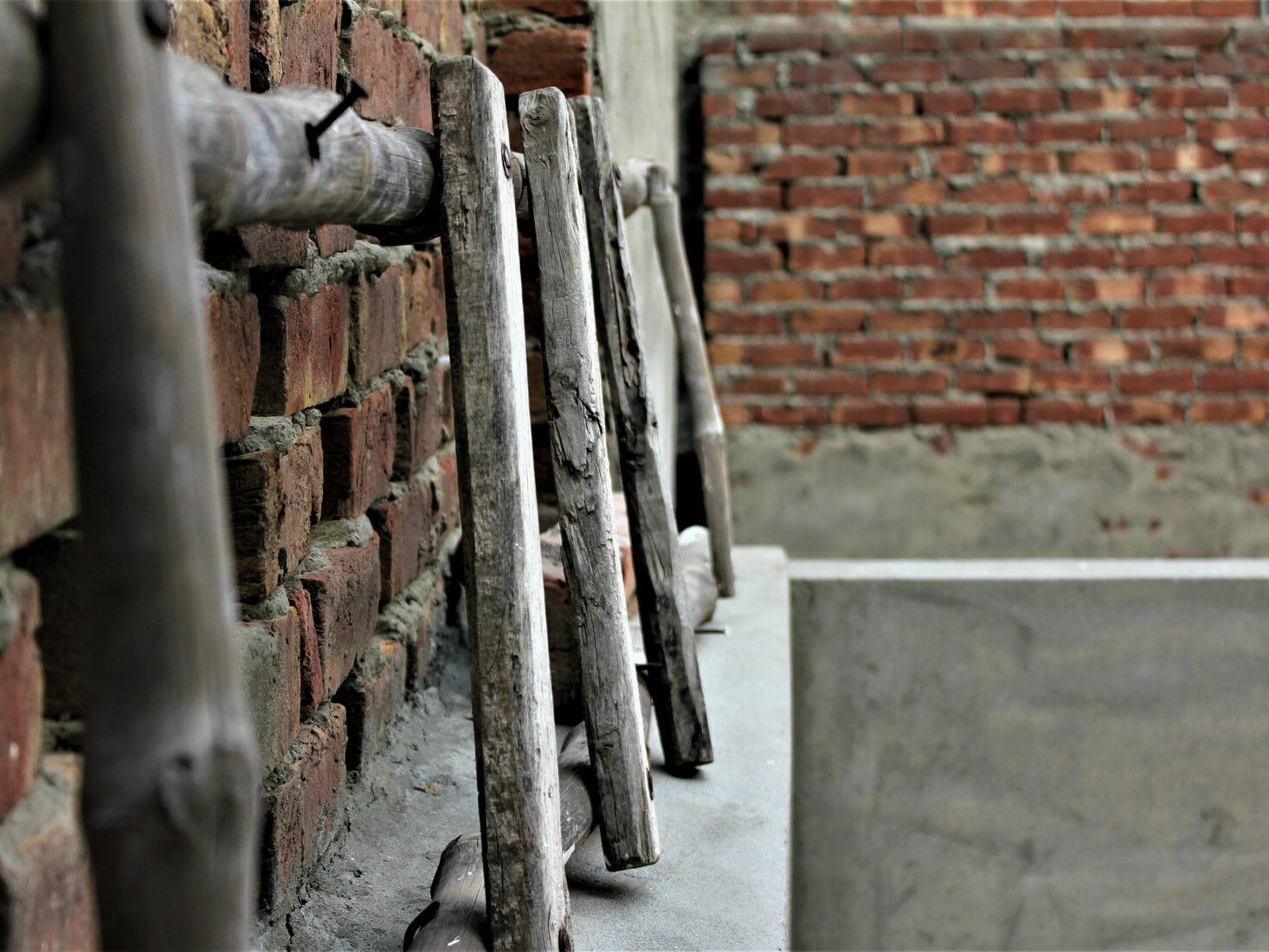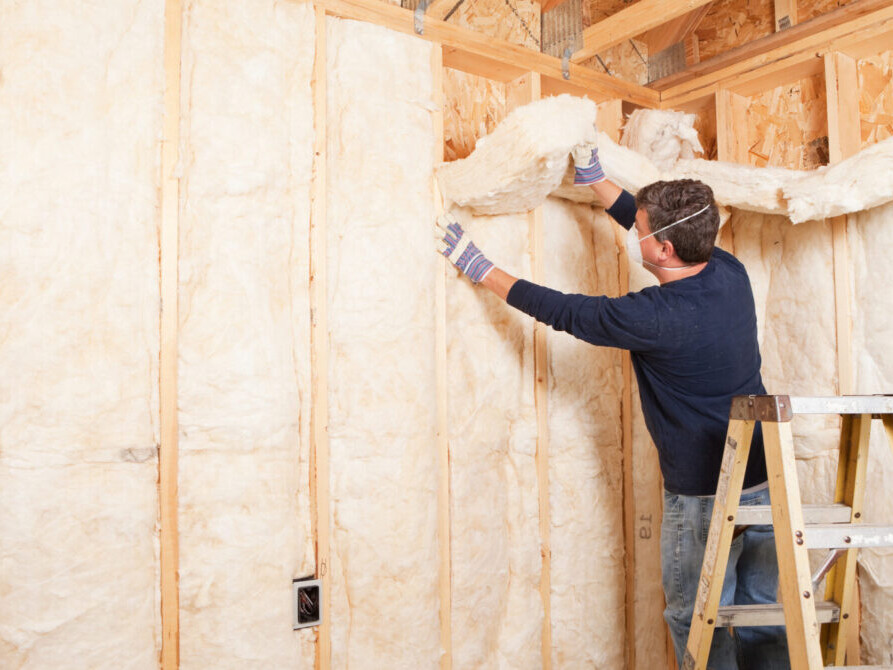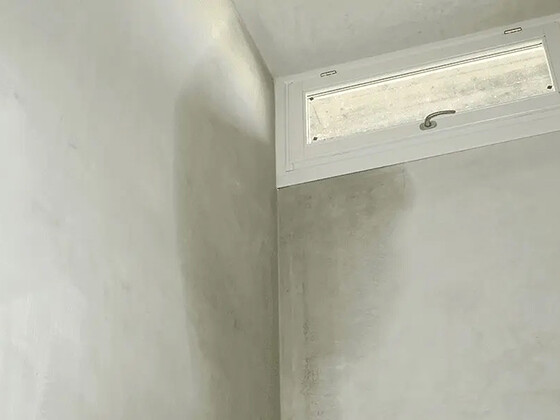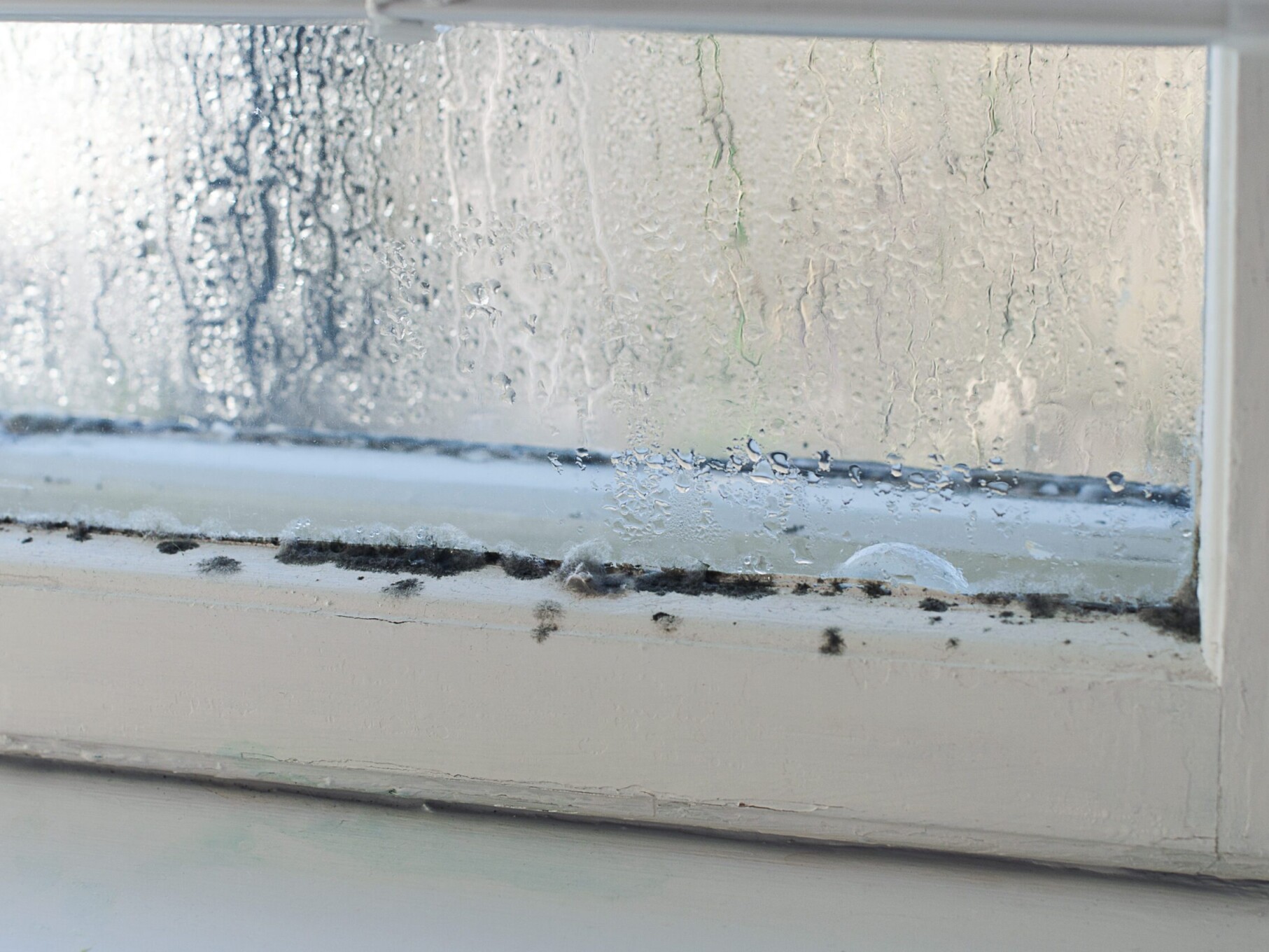Hydrofuge: protect your facade from moisture
Your facade can suffer significant damage from moisture. An effective method of avoiding potential damage is to have hydrofuge performed. This blog will give you a comprehensive understanding of what hydrofuge entails and how it can protect your facade from the adverse effects of moisture.
What is hydrofuge?
Hydrofuge is a form of facade treatment. This involves applying some kind of treatment or coating to the facade with the aim of making it water repellent. The layer then forms a kind of protection for your facade, preventing penetrating damp or water from a leaking gutter from making its way inside, and consequently avoiding the adverse effects of these moisture problems Hydrofuge thus offers an effective method of providing lasting protection of the facade from external influences.
Hydrophobizing versus impregnating
Commonly used synonyms for hydrofuge or hydrophobizing are facade impregnation or facade waterproofing. However, there is a slight difference between the two terms:
Why it's best to have your facade hydrophobized
What makes considering hydrofuge worthwhile? You see, this facade treatment brings a few benefits:
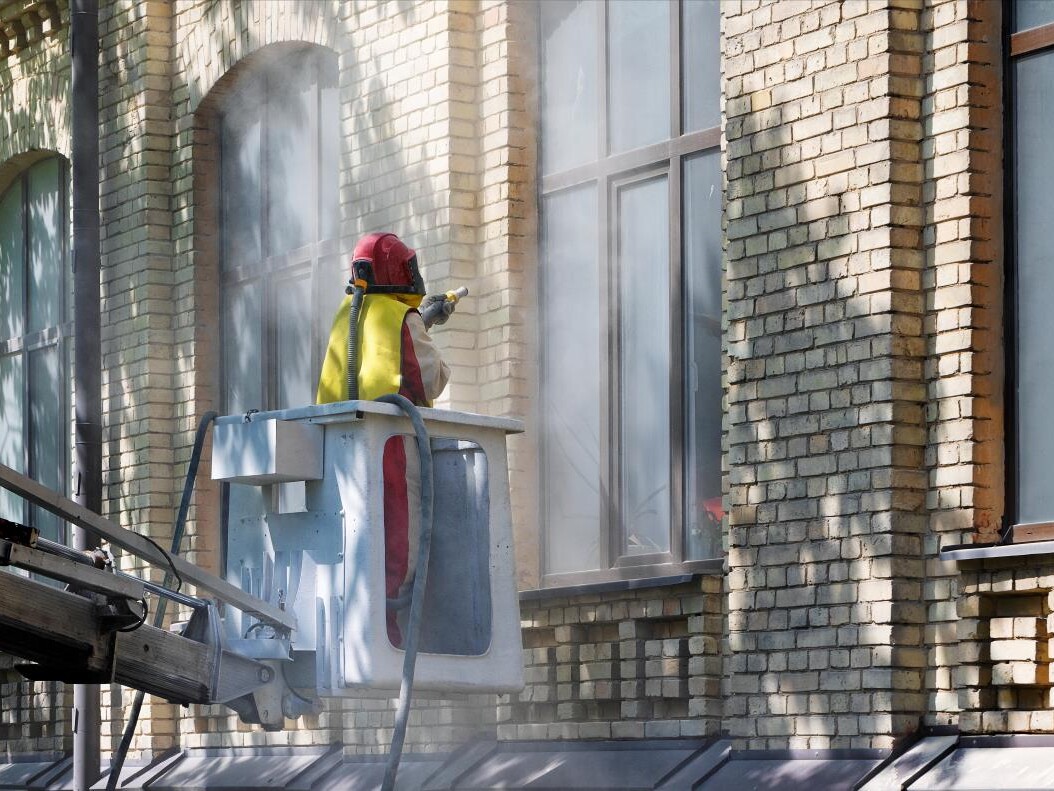
Steps to a water-repellent facade: here's how hydrofuge works
Hydrophobing a facade involves several steps. Typically, a moisture expert proceeds as follows:
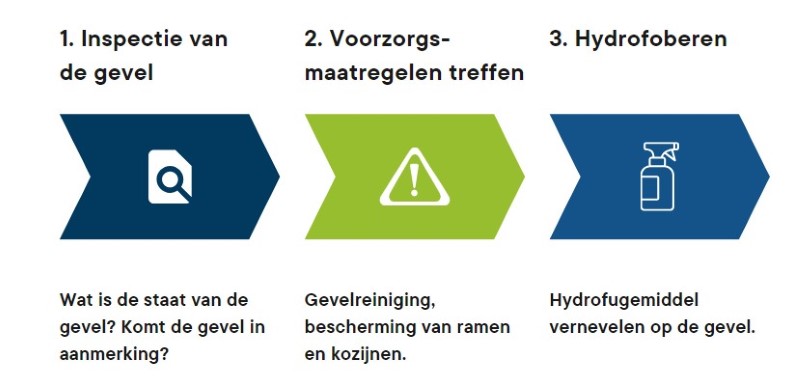
1. Inspection of the facade
The first step is a thorough inspection of the facade. It is essential to assess the current condition of the facade and determine if it is eligible for hydrofuge. During this inspection, any alternatives are also considered. For example, if the moisture expert determines that there is no penetrating moisture but rather rising damp, hydrofuge is not the most appropriate solution. In such cases, a injection of the walls needed. The goal is to choose the most appropriate treatment method and ensure its effectiveness.
2. Taking precautions
Before the hydrofuge process begins, necessary precautions are taken:
These preparatory steps are critical to ensure that the hydrofuge can adhere effectively.
3. Hydrophobing
The application of the hydrofugant is the final step in the process. The product is sprayed over the façade. There are several types of hydrofuge on the market, including both chemical and biological varieties. The chosen hydrofuge then penetrates deep into the pores of the facade, and after drying out, it becomes completely invisible.
This water-repellent layer forms an effective barrier against moisture and other external influences, keeping the facade permanently protected. The result is a facade that is not only water repellent, but also stays clean longer and resists various forms of dirt, such as moss, algae and mold.
What does hydrofuge cost?
It is difficult to set a fixed price for a hydrofuge. In fact, there are many factors that can affect the price tag. Some of these factors include:
We recommend that you hire a professional to hydrofuge your facade. A professional can advise on the condition of the facade and whether a hydrofuge is the appropriate solution. In addition, a specialist is knowledgeable about effective products that provide long-term protection.
Getting rid of moisture?
Do you have a moisture problem, and suspect it could be penetrating moisture? Our field engineers are true experts when it comes to this moisture problem. Contact AquaConsult now for a free, no-obligation expertise.
Tackle hay fever with ionization
01/08/2024
Is moisture bad for your health?
26/07/2024
26/07/2024
What is the technical ATG approval?
23/07/2024
What is floor drainage in the basement?
23/07/2024
Four ways to prevent mold in your home
16/07/2024
How can I waterproof my basement again?
16/07/2024
Is black mold dangerous to your health?
22/09/2022
31/08/2021
Request more information and brochure
Answer the questions below and get more information and our brochure based on them. Would you like to have the cost calculated? Then indicate this clearly in the text field below and we will do the necessary.





